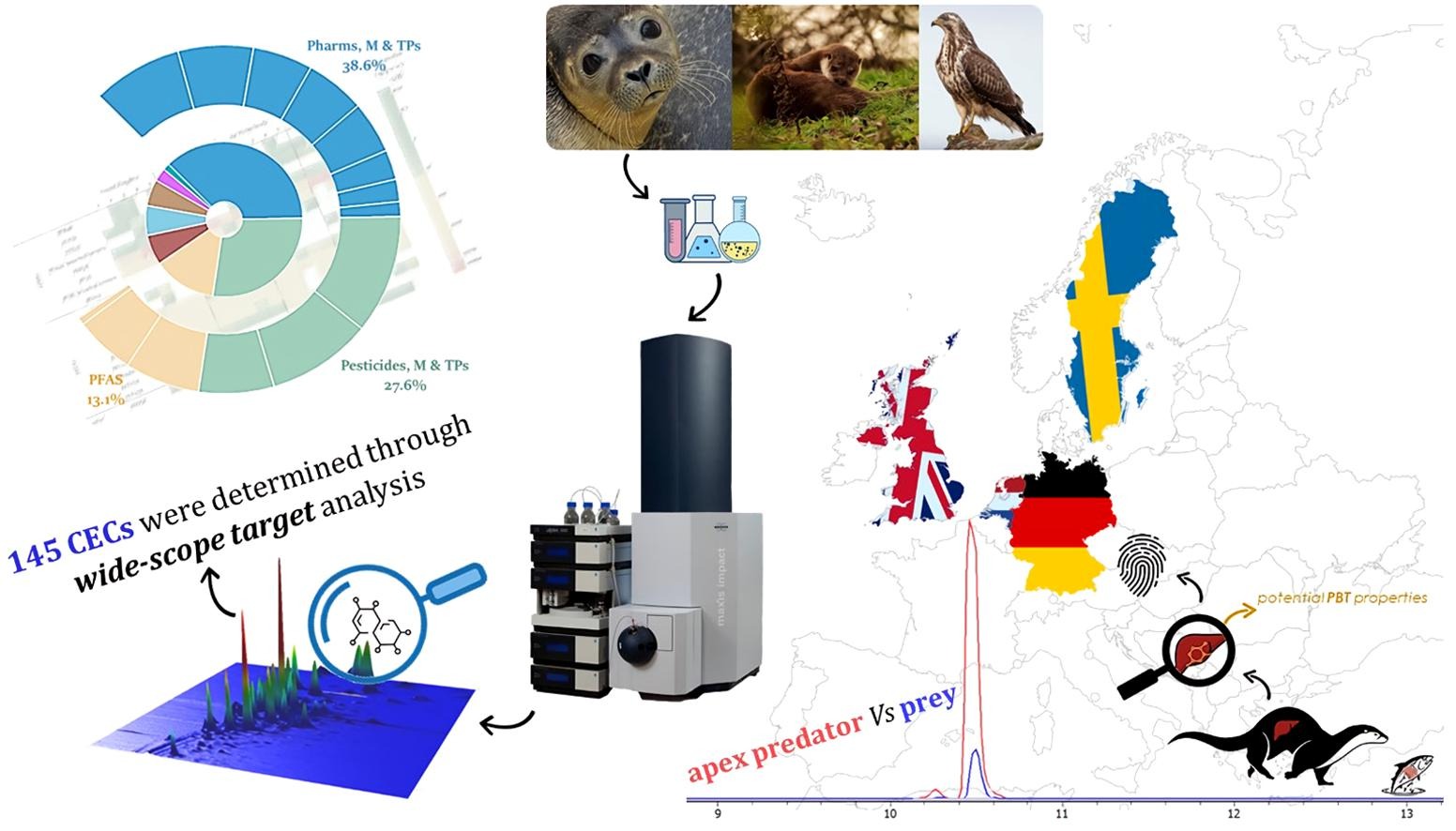Assessment of contaminants of emerging concern in European apex predators and their prey by LC-QToF MS wide-scope target analysis
Gkotsis, Georgios; Nika, Maria-Christina; Nikolopoulou, Varvara; Alygizakis, Nikiforos; Bizani, Erasmia; Aalizadeh, Reza; Badry, Alexander; Chadwick, Elizabeth; Cincinelli, Alessandra; Claßen, Daniela; Danielsson, Sara; Dekker, René; Duke, Guy; Drost, Wiebke; Glowacka, Natalia; Göckener, Bernd; Jansman, Hugh A. H.; Juergens, Monika; Knopf, Burkhard; Koschorreck, Jan; Krone, Oliver; Martellini, Tania; Movalli, Paola; Persson, Sara; Potter, Elaine D.; Rohner, Simon; Roos, Anna; O' Rourke, Emily; Siebert, Ursula; Treu, Gabriele; van den Brink, Nico W.; Walker, Lee A.; Williams, Rosie; Slobodnik, Jaroslav; Thomaidis, Nikolaos S.
Environ Int, 170 (2022), 107623, online 8. November 2022
Abstract
Apex predators are good indicators of environmental pollution since they are relatively long-lived and their high trophic position and spatiotemporal exposure to chemicals provides insights into the persistent, bioaccumulative and toxic (PBT) properties of chemicals. Although monitoring data from apex predators can considerably support chemicals’ management, there is a lack of pan-European studies, and longer-term monitoring of chemicals in organisms from higher trophic levels.
The present study investigated the occurrence of contaminants of emerging concern (CECs) in 67 freshwater, marine and terrestrial apex predators and in freshwater and marine prey, gathered from four European countries. Generic sample preparation protocols for the extraction of CECs with a broad range of physicochemical properties and the purification of the extracts were used. The analysis was performed utilizing liquid (LC) chromatography coupled to high resolution mass spectrometry (HRMS), while the acquired chromatograms were screened for the presence of more than 2,200 CECs through wide-scope target analysis. In total, 145 CECs were determined in the apex predator and their prey samples belonging in different categories, such as pharmaceuticals, plant protection products, per- and polyfluoroalkyl substances, their metabolites and transformation products. Higher concentration levels were measured in predators compared to prey, suggesting that biomagnification of chemicals through the food chain occurs. The compounds were prioritized for further regulatory risk assessment based on their frequency of detection and their concentration levels. The majority of the prioritized CECs were lipophilic, although the presence of more polar contaminants should not be neglected.
This indicates that holistic analytical approaches are required to fully characterize the chemical universe of biota samples. Therefore, the present survey is an attempt to systematically investigate the presence of thousands of chemicals at a European level, aiming to use these data for better chemicals management and contribute to EU Zero Pollution Ambition.
doi: 10.1016/j.envint.2022.107623
